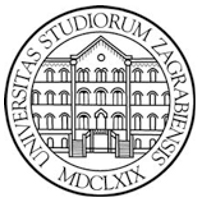Dr. Gojko Bežovan, Professor of Social Policy is head of the TSI Croatia team. He is director of the master and PhD programmes in Social Policy and Head of the ISP. He is informal head of network of academics dealing with research and lecture on civil society/third sector in Croatia and in the region of SESPI- South East European Social Policy Initiative. He is a member of several expert groups dealing with the role of civil society/ third sector in social development issues.
Gojko Bežovan is founder and president of CERANEO – Centre for Development of Non-profit Organisations, a Croatian think tank dealing with action oriented research and advocacy on the role of civil society and the third sector in social policy. He serves as member of the Board of Foundation of University of Zagreb and the largest regional corporate foundation Adris Foundation.
Relevant Publications
- Bežovan G. (2004) Civil Society (Civilno društvo), Zagreb: Nakladni zavod Globus, (second edition 2005).
The book is the first comprehensive insight in the topic of civil society development with a relevant conceptual framework on the topic of civil society, non-profit sector, the third sector in the region. The book gives an overview of civil society development in the west pointing out the most important development issues on theoretical level and presents recent research results. Also, the book makes a critical review of civil society development in Croatia.
- Bežovan G., Siniša Zrinščak (2007) Civil Society in Croatia (Civilno društvo u Hrvatskoj), Zagreb: Jesenksi i Turk/Hrvatsko sociološko društvo.
This book is a result of systematic, comprehensive, action oriented research using the CIVICUS Civil Society Index in Croatia. The book addresses the issue of third sector development, makes a point on the social economy perspective and outlines challenges for emerging social entrepreneurship in Croatia. Part of the book addresses civil society development in transitional countries from a comparative perspective.
- Bežovan G. (2007) Croatia. In Search of Civil Society. Polityka i Spoleczenstwo, 4: 16-25.
- Bežovan G. (2009) Civil society and public administration as stakeholder of civil society development in Croatia (Civilno društvo i javna uprava kao dionici razvoja kombinirane socijalne politike u Hrvatskoj), () Hrvatska javna uprava, 9: 355-391.
- G. Costa, G. Bezovan, P. Palvarini, T. Brandsen (2014) Housing and social vulnerability in European cities. In: Social Vulnerability in European Cities – The Role of Local Welfare in Times of Crisis, Palgrave Macmillan
- Bežovan, G., Matančević, J., Baturina, D., (2014). Zagreb. Social innovations for social cohesion: transnational patterns and approaches from 20 European cities. In: Evers, A.,Ewert, B. Brandsen, T., (Eds) Liege : EMES, 2014. Str. 31-47.
http://www.wilcoproject.eu/downloads/WILCO-project-eReader.pdf
Projects
Welfare Innovations at the Local level in favour of Cohesion, WILCO (2011-2013)
WILCO gathered a wide range of third sector stakeholders who were active participants in the project. We made a comparative analysis of the conditions of occurrence and success of various initiatives within different socio-economic models and traditions of local social policy. Many of them come from the third sector, with emphasis on the field of social entrepreneurship and the social economy. WILCO showed that third sector practitioners have significant capacity for innovative thinking and developing of social innovations. As outcome of the project we have indentified some critical issues for determining the current state and future prospects of development the of third sector in Croatia.
www.wilcoproject.eu
Strengthening civil society organisations as stakeholder of welfare mix (2011-2013)
Welfare mix approach raises the issue of involvement of different local stakeholders in provision of social services. Social enterprise principles play the critical role here and in that way it is connected to TSI.
Democratic Multilevel Governance in Europe, CONNEX (2004-2007)
Working group 5 inside the project was dealing with social capital as catalyst of civic engagement and quality of governance.
Indicators of social cohesion and development of the Croatian social model (2006-2013)
This research project looked into housing issues as part of a social economy concept.




